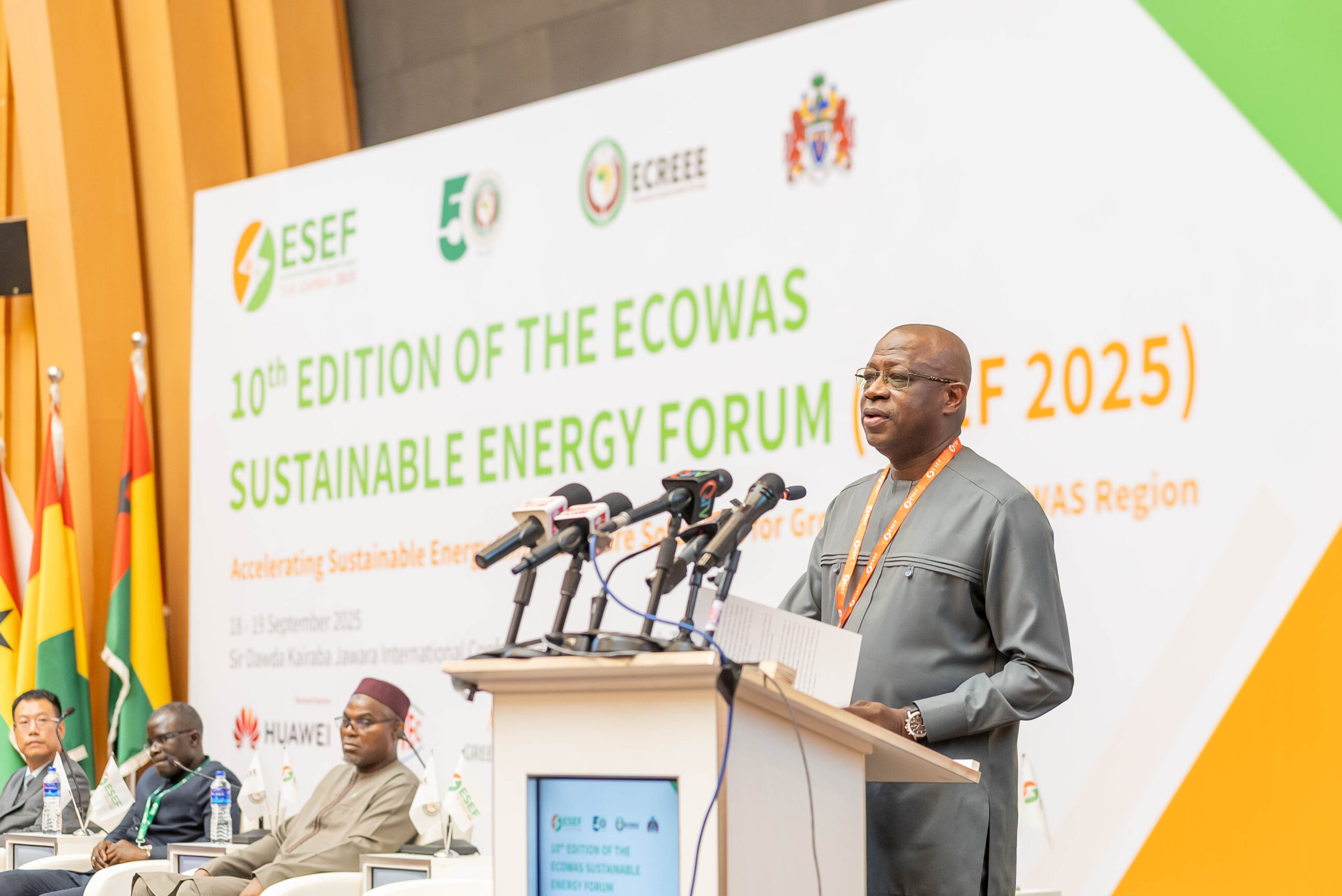The 10th edition of the ECOWAS Sustainable Energy Forum (ESEF 2025) successfully concluded at the Sir Dawda Kairaba Jawara International Conference Center, marking not only a decade of ESEF but also the 50th Anniversary of ECOWAS and the 15th Anniversary of ECREEE.
Held under the theme “Accelerating Sustainable Energy Infrastructure Solutions for Growth in the ECOWAS Region,” the forum brought together Ministers, Diplomatic Organizations, National experts, private sector leaders, development partners, innovators, and civil society to deliberate towards accelerating West Africa’s transition to sustainable energy.
The two-day forum featured an engaging agenda including ministerial and high-level dialogues on accelerating sustainable energy infrastructure, scaling up energy efficiency, and expanding clean cooking access for health and environmental benefits. Stakeholders explored solutions for powering food systems through solar irrigation, hydropower, and efficient value chains, while experts examined strategies for sustainable mobility and electric vehicle integration. Discussions also addressed the ECOWAS Green Hydrogen Strategy, reviewed progress under ProCEM II to promote a climate-friendly electricity market, and advanced ROGEAP initiatives to expand the solar PV market and unlock financing for off-grid electrification across West and Central Africa.
Summary of final decisions and recommendations
Stakeholders reaffirmed the urgency of accelerating the ECOWAS Regional Electricity Market and the West Africa Clean Energy Corridors while advancing sustainable mobility through robust policy frameworks, innovative financing, charging infrastructure, and effective public-private partnerships. They further emphasized the need to strengthen the water–energy–agriculture nexus by scaling up structural projects, integrating clean mobility, and mobilizing financing to move beyond pilot initiatives. On clean cooking, participants called for stronger institutional capacity, affordable business models, carbon finance, and public-private collaboration to expand access, alongside monitoring systems and regional data collection. Finally, green hydrogen was highlighted as a transformative opportunity, with recommendations to launch demonstration projects, secure early-stage financing, establish certification systems, deepen regional cooperation, and invest in capacity-building across the value chain
As Customary, ESEF 2025 concluded with an Awards Ceremony, in which ECREEE honored individuals and partner organizations for their outstanding contributions to advancing sustainable energy in the ECOWAS region. The ceremony also recognized excellence in innovation, with prizes awarded to candidates presenting the best ROGEAP business plans on off-grid solar solutions.
Closing Remarks
In his closing remarks, Mr. Francis Sempore, Executive Director of ECREEE, expressed gratitude to the Government of The Gambia, partners, sponsors, and participants for their invaluable contributions to the success of the Forum. He highlighted the special significance of this year’s edition, marking the 15th anniversary of ECREEE and the 50th anniversary of ECOWAS. He affirmed that ESEF 2025 has demonstrated the region’s unwavering commitment to sustainable energy, with the ideas, partnerships, and pledges forged during the Forum set to drive the next chapter of West Africa’s energy transformation.
Speaking on behalf of the Honorable Minister of Petroleum and Energy of The Gambia, Mr. Lamin Camara, Permanent Secretary, conveyed that hosting ESEF 2025 was a profound honor for The Gambia. He underscored that the outcomes of the Forum resonate with the spirit of ECOWAS at 50 and ECREEE at 15, reflecting the region’s collective resolve to make sustainable energy a cornerstone of resilience and prosperity for its people. With these reflections, he had the honor to formally declare the Forum closed.

